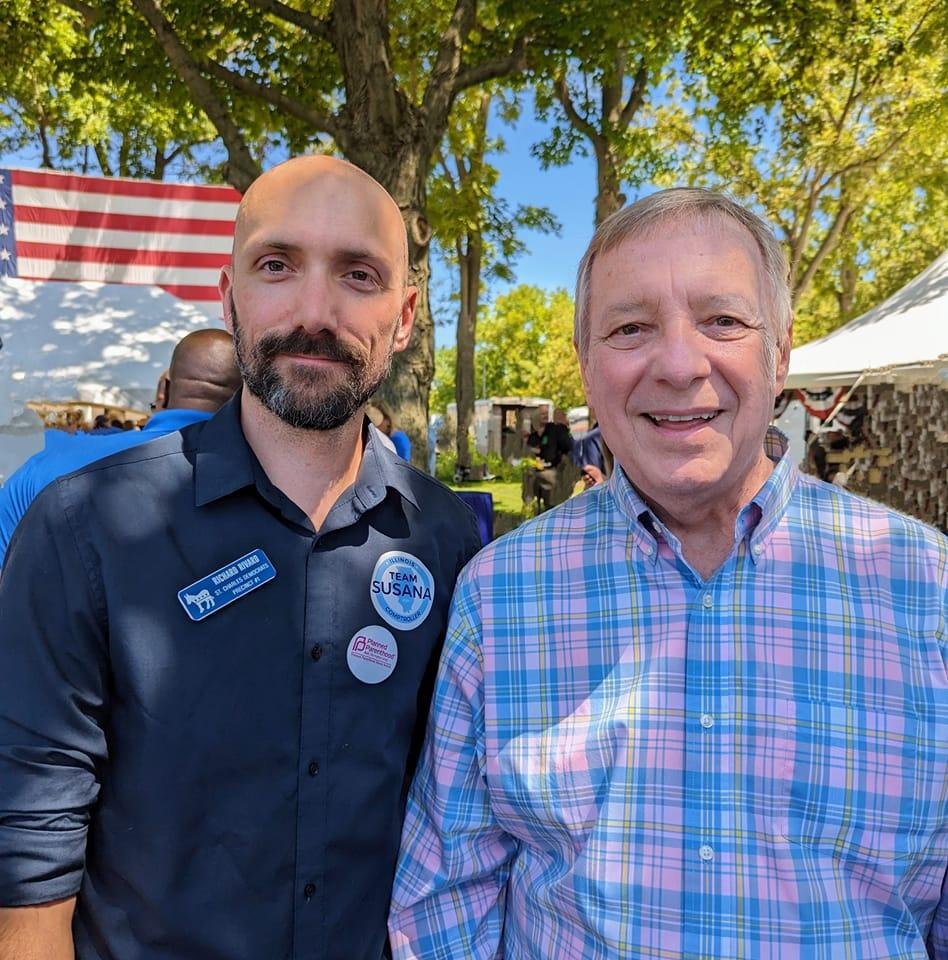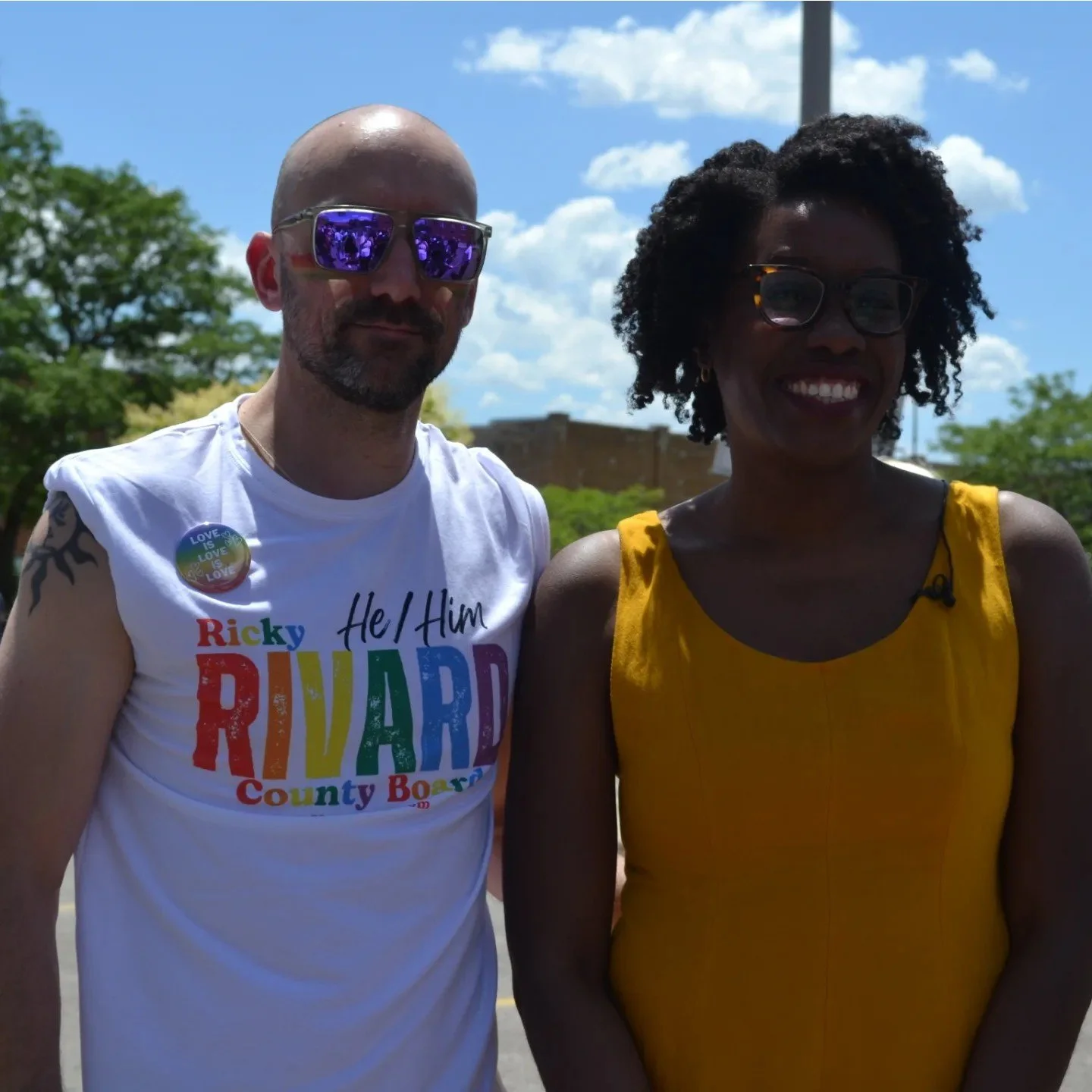What in your professional experience best qualifies you for a seat on the Kane County Board?
My classroom training, coupled with my years in the service industry, has honed my ability to process vast amounts of information and present complex ideas in an accessible manner. These skills distinguish me from my opponent, who may occasionally struggle to communicate effectively with board members and the public.
My most recent career is in academia, where I studied political science and history at Northern Illinois University, followed by further studies in political science at the graduate level. This experience taught me how to distill hundreds of pages of complex material across multiple disciplines into understandable and digestible information.
Throughout my professional experience, I have consistently worked in customer-facing roles, culminating in my current position as a professor of political science. In the early part of my career, I worked in the restaurant industry, where I developed a strong table-side manner that effectively addresses the needs of the people I've had the pleasure of meeting. Additionally, I gained management experience in the restaurant sector, where navigating the complex relationships between guests, staff, and the balance sheet requires a unique skill set that I possess.
Why are you the better candidate?
The key distinction between my opponent and me is my belief in the power of government as a force for positivity and good in the lives of the residents of Kane County. I am genuinely passionate about working in government to provide programs and services that add value to our community. I believe that the government should offer a safe haven for people to explore and take risks without the fear that failure will leave them unsupported.
I will always stand with our LGBTQ+ friends, support a woman’s right to healthcare, and I will never use marginalized groups as a political opportunity or weapon. Coming from a single-parent, multigenerational household, I understand the importance of family, friends, and community. I not only see and hear the concerns of young families; I am also one of those families navigating life in Kane County. These experiences and values will empower me to deliver on the promise of responsible, effective policies from day one.
What do you think are the three biggest challenges Kane County will face during the next term and what solutions would you propose?
The three biggest challenges facing Kane County over the next four years are mental health investment, budget concerns with fiduciary responsibility, and enhancing pedestrian safety and functionality.
There is an increasing need for mental health services in our county. As the Vice Chair of the St. Charles 708 Mental Health Board, I have firsthand experience in addressing these issues. To further tackle the growing demand for mental health services, I propose increasing funding for mental health programs and partnering with local organizations to expand outreach and support. This could include implementing educational initiatives to reduce the stigma surrounding mental health, promoting existing programs, and seeking support from the Ad-Hoc Opioid Committee to fund outreach and mental health services, as the opioid crisis is also a mental health crisis.
As we navigate the budget constraints facing Kane County, it is essential to use taxpayer dollars effectively and responsibly. I will advocate for a thorough review of our budget processes to identify inefficiencies and prioritize essential services. One simple step we can implement from day one is transitioning to LED lightbulbs, which, while not a comprehensive budget solution, represents a small but meaningful step toward overall budget health. Engaging with community stakeholders in budget discussions can help us align spending with residents' needs, ensuring every dollar is invested wisely.
Enhancing pedestrian safety is crucial for creating a more accessible and functional Kane County. I propose increasing funding for infrastructure improvements, such as better sidewalks, crosswalks, and bike lanes. Additionally, implementing community awareness campaigns can encourage safe practices among both pedestrians and drivers, fostering a culture of safety and inclusivity.
What do you think are the three biggest challenges Kane County will face during the next term and what solutions would you propose? Why do you want a seat on the board? What goals would you like to accomplish during your term?
I have a passion for service and a commitment to making government work in a way that enhances the lives of residents. Whether at the national level with programs like Medicare, Social Security, and highways, or at the local level with the Department of Transportation, Health Department, or efforts to protect women’s access to healthcare, we have an incredible opportunity to come together to achieve great things. I am excited to serve in this capacity to continue improving Kane County and the lives of its residents.
I hope to see an increase in funding for mental health services to address the growing demand we’ve seen in recent years in Kane County. I aim to help guide the county through the impending financial challenges while ensuring that programs vital to working families do not suffer as a result. Finally, I want to set aside resources to invest in a plan that improves pedestrian accessibility and enhances the safety of those who rely on non-vehicular transportation to navigate Kane County.
Do you believe you can serve your constituents in a bipartisan manner? Why or why not?
In today's political landscape, bipartisan cooperation is crucial. My experience in leading in-class discussions and my years in the service industry have taught me the value of building consensus, harnessing diverse perspectives, and strengthening trust within the community. I will advocate for open communication among board members, promote shared goals such as public safety and infrastructure improvements, and encourage cross-party committees to collaboratively find solutions.
Transparency in decision-making and valuing every board member’s contributions are essential for fostering unity. I will lead by example, drawing on my background in facilitating discussions and engaging with a wide range of people to promote respectful dialogue and cooperation. Together, we can create a more unified and effective county board that truly serves the needs of our residents.
In 2019, Kane County adopted the Greenest Region Compact, the largestsustainability collective of communities in the U.S. Do you believe the county board has a role in addressing climate change? Why or why not?
I firmly believe the county board has a crucial role in addressing climate change. I'm pleased the board recently passed the Climate Action Plan, despite the objections and "no" votes from my opponent and his allies. Climate change is a serious issue that demands serious solutions and good-faith actors to shape policy and set examples for local governments. This challenge extends beyond our county, our state, and our nation—it's a collective action problem. We, as a county, cannot stand idly by while the planet experiences more extreme weather and storms.
Some may argue that there are no quick solutions or that little can be achieved over the next four years. However, this is a long-term issue that requires planning with future generations in mind, not just the next election cycle. I am committed to helping implement the Climate Action Plan at the county level, while collaborating with our municipalities and the state. As a father of two young children, I know we can no longer delay or pass this responsibility on to the next generation.








































